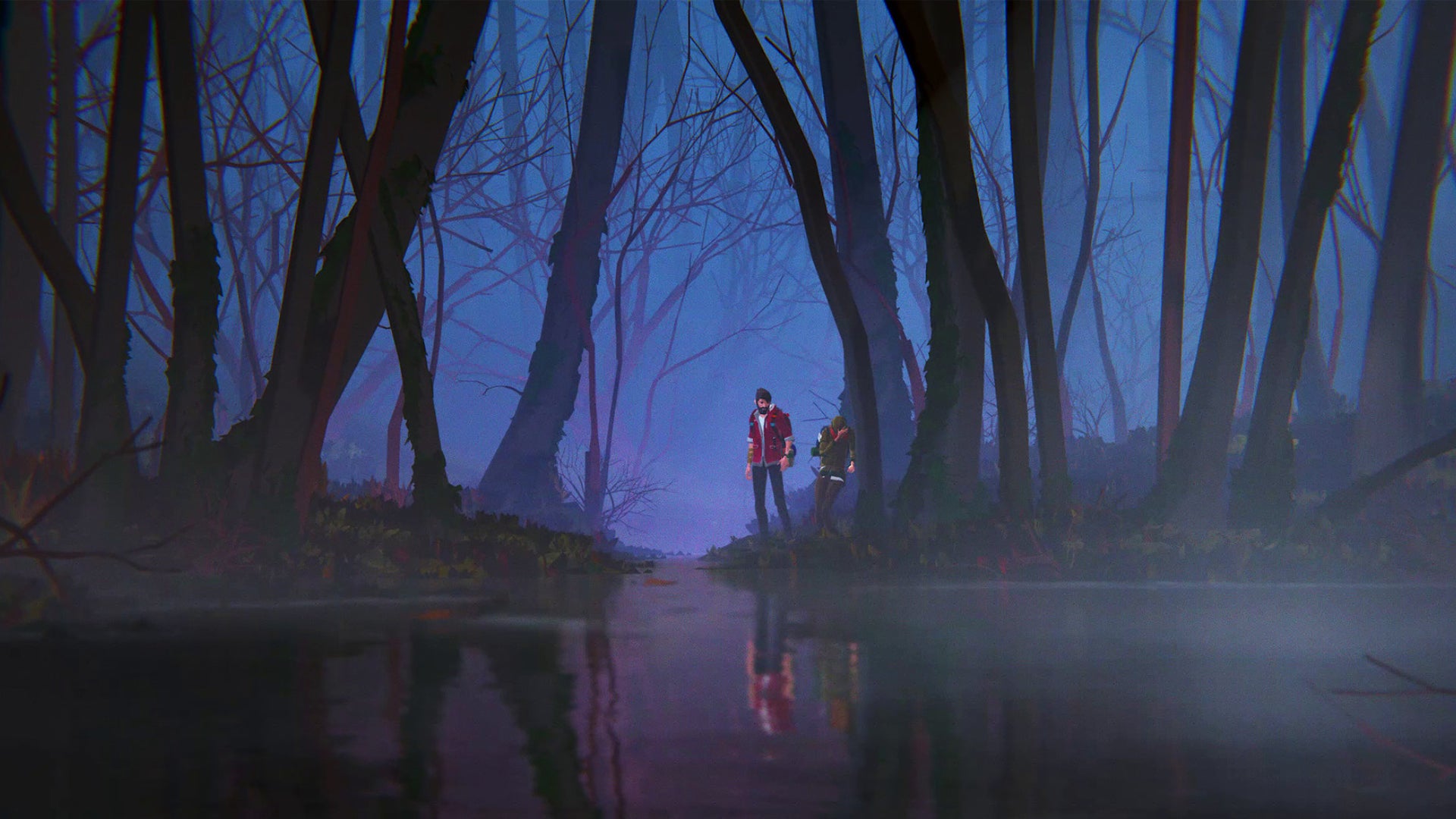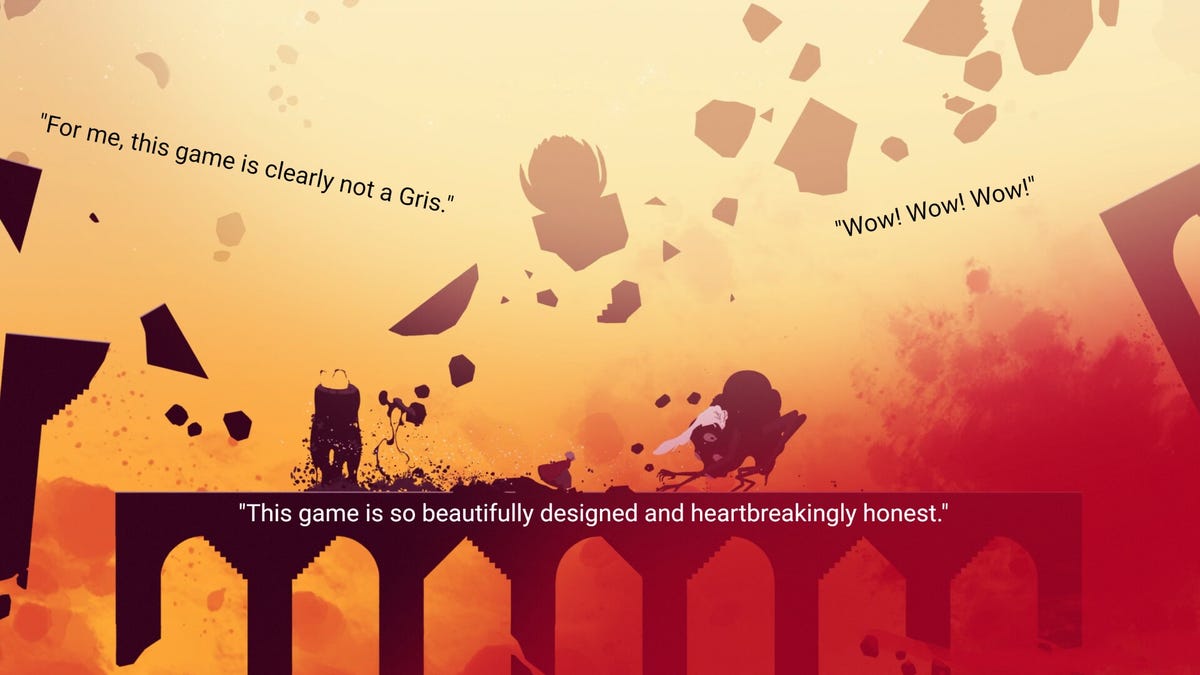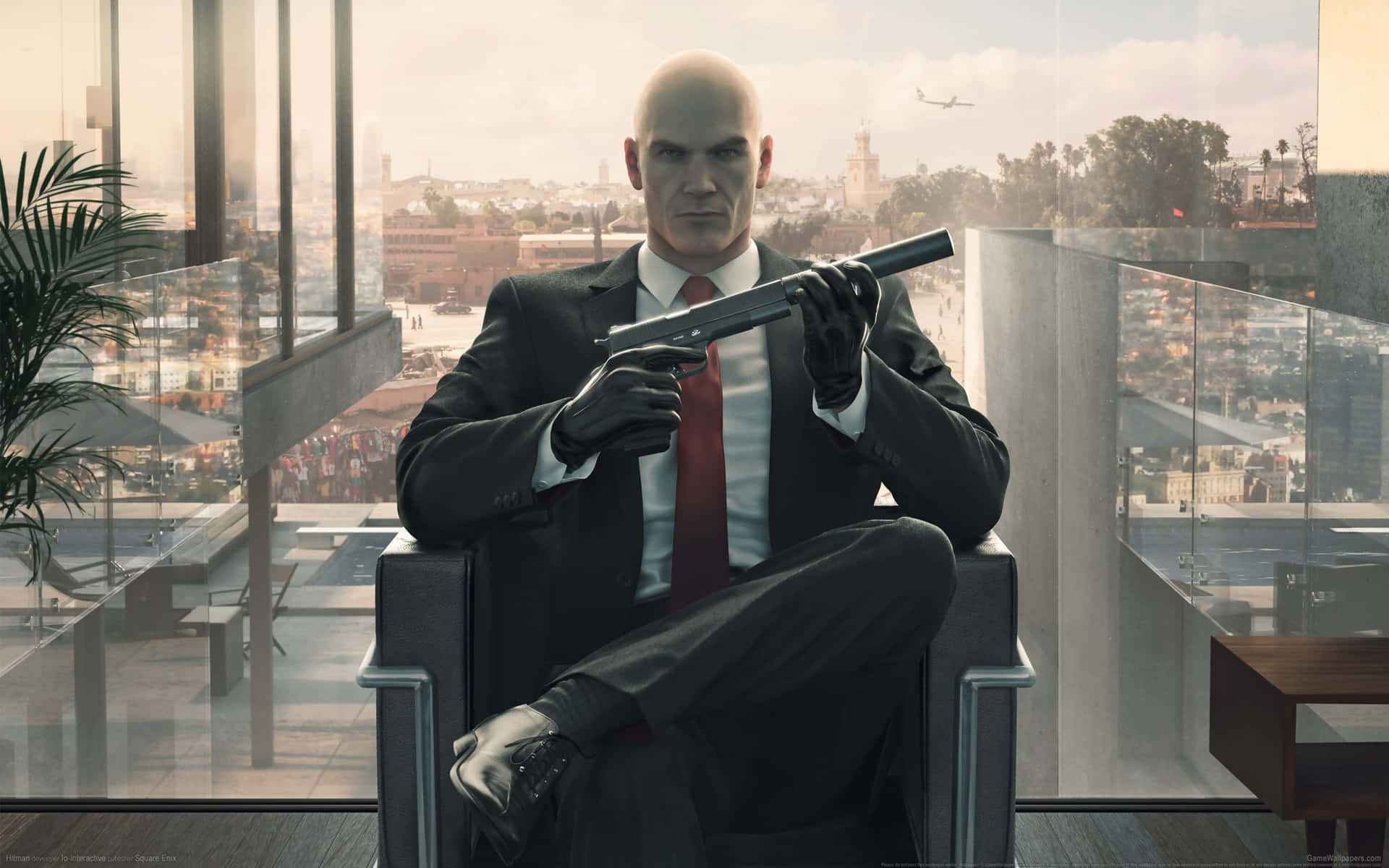I was ecstatic from the start. A toddler hangs out in a room lit only by the static light of the TV while the parents sleep on the couch. It’s the most unlikely opening to a story about an invasion, but it gives you all the information you need to invest in. A low-key personal disaster movie kicks off in the next moment, and I’m hooked for the next few hours.
Jumpship has created a game that is difficult to define. While it’s broadly similar to studio co-founder Dino Patti’s Inside (which he produced at Playdead), Somerville Bigger and more beautiful. Despite some nuanced moments, it’s a pretty grand sci-fi adventure, and an amazing achievement for writer/director Chris Olsen and team.
This post will be short, partly because I’m pressed for time. I just don’t want to talk too much about what’s going on in Somerville–it’s itself a game that packs a lot into a fairly short runtime. On a purely functional level, it’s an evolution of Inside, since a lot of the game is spent walking around with your character, more or less taking in the scenery. There’s more exploration here, though, and the environments are more interactive than Inside, but this isn’t a platformer by any description.
Somerville is still what I guess you’d describe as an “interactive experience” rather than a “gamer’s game video game,” but you can roam around more freely than I expected. This leads to some unfortunate control anomalies, such as the character’s occasional reluctance to do things you clearly know you need to do (such as turning a crank). At worst, it’s a bit irritating, though – not game-breaking – but unfortunately, it can take a little away from the immersion.
It’s a shame, because that immersion is so important. There are puzzles – most of which aren’t overly obtuse and rely on common sense by and large – but the star here is the world itself. Subtle details that hint at events that have already occurred. You arrive after the story has been told and can only piece together what happened as you venture forward to try to put your own life back together after a cataclysmic event that wiped out the world.
No doubt there will be a ton of critical thinking about what Somerville said, but for me it ended up being pretty simple, despite not quite understanding the game’s climactic moments. I’d love to dig deeper with additional playthroughs and hear what others have to say about certain scenarios, but I feel deeply lost and regretful. Once, when I was playing late into the night on Steam Deck, my face was staring at me, my eyes watered – that moment was so perfect, so emotional, I’m still thinking about it. in a few days.
In fact, I’m not the greatest thinker when it comes to media. I watched a movie, read a book, played a game, and superficially saw what was going on. If the meaning is hiding behind a 10k-post Reddit thread, well, maybe it’s not conveyed well enough. Somerville doesn’t have that problem. It makes an impact in all the right ways, and I really can’t recommend this game highly enough.










